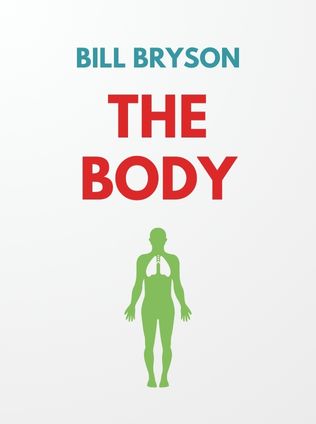
The Emperor of All Maladies
A Biography of Cancer
By Siddhartha Mukherjee
Published 11/2010
About the Author
Siddhartha Mukherjee, the author of The Emperor of All Maladies, is a distinguished physician, oncologist, and biologist who has dedicated his career to understanding and treating cancer. His work, including this Pulitzer Prize-winning book, reflects a deep commitment to exploring the intricate and often heartbreaking story of cancer. Mukherjee earned his MD from Harvard Medical School and a PhD from Oxford University as a Rhodes Scholar. In addition to his groundbreaking work in cancer research, he has contributed to popular science through his writing, including his well-received book The Gene: An Intimate History.
Main Idea
The Emperor of All Maladies is a comprehensive "biography" of cancer, tracing its history from ancient times to the modern era. Mukherjee explores cancer not just as a disease but as an entity that has evolved alongside humanity, reflecting changes in medicine, society, and our understanding of the body. He delves into the scientific advancements, the social and cultural contexts, and the personal stories of those affected by cancer, creating a narrative that is as much about the people who have battled the disease as it is about the disease itself.
Table of Contents
- Prologue
- A Suppuration of Blood
- An Impatient War
- Will You Turn Me Out If I Can't Get Better?
- The Red Queen's Race
- A Distorted Version of Our Normal Selves
- Mr. Radium
- A New War on Cancer
- The Fruits of Long Endeavors
- The Consequence of What We’ve Done
- Atossa’s War
- Epilogue: The Next Epidemic
Prologue
Mukherjee begins with a powerful prologue that sets the tone for the entire book. He describes cancer as an ever-present and evolving entity, a disease that has shaped and been shaped by human history. "Cancer is not one disease but many," Mukherjee writes, emphasizing the complexity of cancer as it manifests in various forms and impacts people differently. This sets the stage for a detailed exploration of how cancer has been understood and treated across different eras.
A Suppuration of Blood
This chapter dives into the earliest recorded instances of cancer, with references to ancient Egyptian manuscripts and Greek medicine. Mukherjee explores how early physicians like Hippocrates and Galen conceptualized cancer, often as a result of an imbalance in bodily fluids or "humors." These early theories, though incorrect, laid the groundwork for later understanding. Mukherjee notes, "The ancients saw cancer as a systemic disease, a reflection of an imbalance within the body rather than a localized tumor," a view that, while flawed, recognized the pervasive nature of cancer.
An Impatient War
Mukherjee moves into the 19th and early 20th centuries, a period marked by rapid advancements in medicine. The discovery of anesthesia and antisepsis allowed for more aggressive surgical interventions. Mukherjee highlights the work of surgeons like William Halsted, who pioneered radical mastectomies to treat breast cancer. This period also saw the first inklings of understanding that cancer could be caused by external factors, such as the work of Percivall Pott, who linked scrotal cancer to chimney sweeps' exposure to soot. Mukherjee emphasizes, "The realization that cancer could have environmental causes was a turning point in the battle against this disease."
Will You Turn Me Out If I Can't Get Better?
In this chapter, Mukherjee discusses the often bleak prognosis for cancer patients before the advent of modern treatments. He explores the development of radiation therapy and chemotherapy, which began to offer some hope. The story of Sidney Farber and his work with antifolates in treating childhood leukemia is particularly poignant. Mukherjee writes, "Farber's work was a beacon of hope in a dark time, demonstrating that cancer could be fought, if not yet cured." This chapter also delves into the human side of cancer treatment, exploring the emotional and psychological toll on patients and their families.
The Red Queen's Race
The title of this chapter refers to the idea that cancer is constantly evolving, much like the Red Queen in Lewis Carroll's Through the Looking-Glass, who must keep running to stay in the same place. Mukherjee explains how cancer cells mutate rapidly, making them resistant to treatments that initially seem effective. This chapter also discusses the concept of "total therapy," a comprehensive approach to treating cancer that emerged in the mid-20th century. Mukherjee notes, "The Red Queen's race is a metaphor for the relentless nature of cancer and the ongoing struggle to find treatments that can outpace it."
A Distorted Version of Our Normal Selves
Here, Mukherjee delves into the biological mechanisms of cancer, explaining how mutations in DNA lead to the uncontrolled cell growth that characterizes the disease. He discusses the work of researchers like Theodor Boveri, who first proposed that cancer was caused by chromosomal abnormalities. Mukherjee's explanation of the molecular basis of cancer is both accessible and insightful, making complex scientific concepts understandable to the lay reader. "Cancer," he writes, "is a distorted version of our normal selves, a perversion of the very processes that keep us alive."
Sign up for FREE and get access to 1,400+ books summaries.
You May Also Like
The Body Keeps the Score
Brain, Mind, and Body in the Healing of Trauma
By Bessel van der KolkFactfulness
Ten Reasons We're Wrong About the World – and Why Things Are Better Than You Think
By Hans Rosling



















